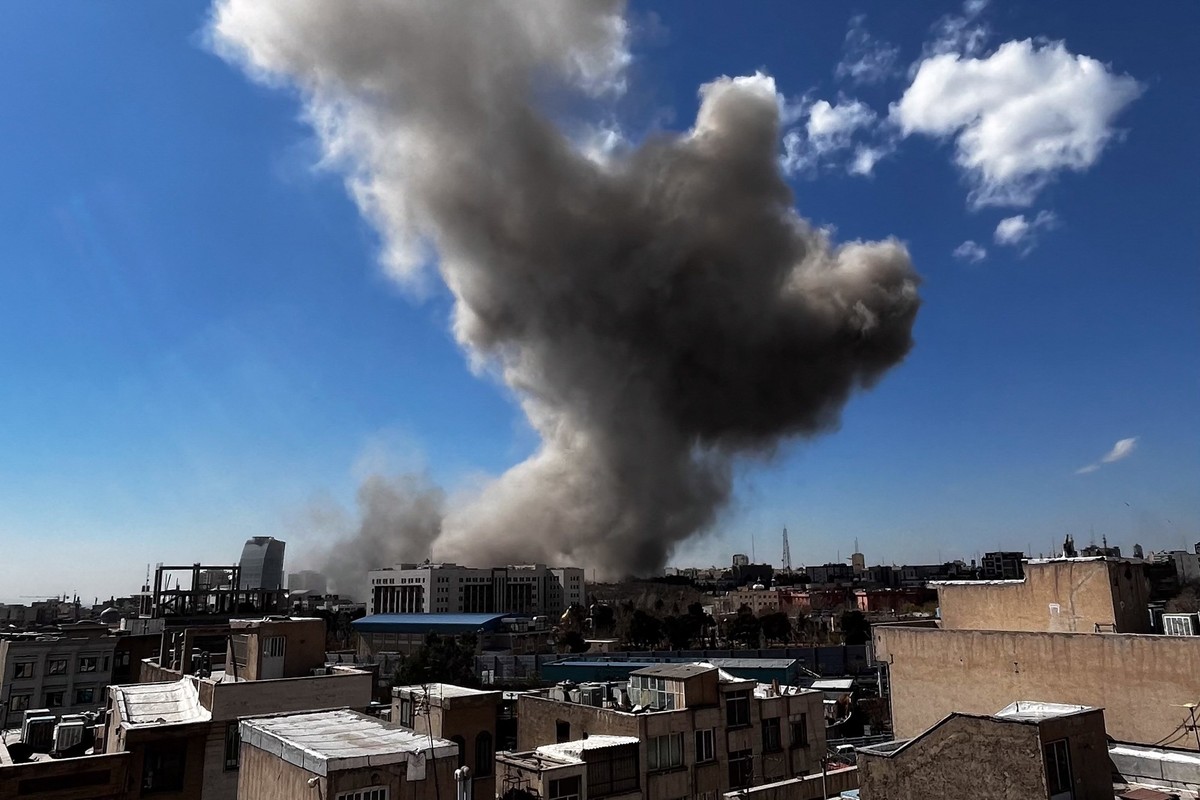The OPEC conference in Vienna ended on June 22 with a Saudi-engineered defeat of Iran’s efforts to oppose any production hike. Masked in vague language, the new OPEC agreement will put at least an additional 600,000 barrels per day (bpd), and possibly as much as one million bpd, on the market in the coming weeks. The impact of this production will be offset by losses from Venezuela and Libya.
Since the conference, the Saudis have implied that they may be willing to increase output even further, although they are unlikely to achieve the additional two million bpd requested by President Donald Trump. The ongoing collaboration of Saudi Arabia and (non-OPEC member) Russia, meanwhile, to increase production, signals the arrival of an oil alliance which, in today’s tight market, rivals OPEC for influence.
For the remainder of 2018, a combination of strong demand and limited excess capacity will make it difficult for the market to absorb inevitable disruptions and the high level of uncertainty involving key producers will encourage price increases and volatility.
Absent a significant downturn in the European and Chinese economies, the additional Saudi production is unlikely to stop Brent oil prices from ending the year above $80 a barrel, perhaps north of $90 pending the course of events in Libya and Venezuela.
Here's a road map of where we're headed:
Saudi dominance of OPEC decision-making continues
The final report of the just-concluded OPEC Conference in Vienna will bring little comfort to those seeking lower oil prices, but it did demonstrate a power shift among major oil producers. Riyadh’s decision to coordinate energy issues with Moscow enabled the Kingdom’s Oil Minister Khalid al-Falih to dominate the conference.
Norman T. Roule, Former National Intelligence Manager for Iran, ODNI
"Iran’s campaign to oppose production increases was defeated by Western concerns over rising prices, OPEC’s acknowledgement that past production cuts had inadvertently overshot their goal, close U.S.-Saudi political relations, and a shared desire by Moscow and Riyadh to increase production to gain needed revenue. In the coming weeks, the world will look to Riyadh, and not Vienna to understand the direction of oil prices."
Yet, little of this is a surprise and details of the Saudi-Russian relationship have drawn increased notice over the past year.
- As oil prices moved past $75 a barrel, and in preparation for sanctions on Iran’s oil enterprise, the United States encouraged Saudi Arabia – essentially OPEC’s sole swing producer – to ramp up production to dampen rising prices. The U.S. argument was supported by the fact that OPEC had overachieved in its planned production cuts by 52%, i.e., 600,000 barrels per day (bpd) below OPEC’s planned ceiling.
- The impending sanctions campaign against Iran will remove as much as a further 1 million barrels from the market and major oil buyers have already begun to look elsewhere for new supplies.
A diplomatic victory for Washington, Riyadh, and Moscow
The swift agreement to increase production is a victory for the Trump administration as well as for Riyadh and Moscow.
- For the U.S.: Domestically, higher oil prices could dampen U.S. economic growth at a time when trade frictions have begun to impact key industries. Higher oil prices would be an unwelcome additional burden for Republicans to carry into upcoming crucial mid-term elections. Looking abroad, a production increase would soften the blow of sanctions on European and Asian partners who show little enthusiasm for U.S. moves against Iran.
- For Riyadh: Foremost, the OPEC decision will allow the Kingdom to raise oil revenue to bolster its national reserves as well as to fund modernization projects. The Saudis have demonstrated their ability to be responsive to Western concerns both over higher oil prices and concerns that Iran sanctions would reduce oil supply. Likewise, Riyadh’s engagement with Moscow provides a useful potential wedge between Iran and Russia.
- For Moscow: As with the Saudis, Russia will welcome the influx of revenues to sustain its flagging economy. Equally important is the political value of the move. Russia has demonstrated its oil clout just before an important summit with President Trump, in which he will no doubt try to show his value as a partner and seek to weaken U.S. sanctions.
Iran's Weak Hand
Iran’s oil minister Bijan Zangeneh arrived at the OPEC conference in a huff, determined to oppose oil cuts. Yet, aside from his posturing in Vienna, his options were few. In a world with few allies, and more enemies and powerful market forces against it, Iran had little choice but to agree to the conference compromise of a vague statement on production increases within OPEC’s existing ceiling. The opposition of Moscow represented a significant obstacle. Tehran cannot afford to upset its only ally on Syria and will seek Moscow’s support to blunt impending U.S. sanctions. Tehran’s eventual acceptance of vague language on production ceilings within OPEC’s 2016 decision may have allowed it to save face, but three important factors decided the outcome of this conference:
- First, OPEC production cuts had exceeded the organization’s agreement. In response to the collapse of oil prices in 2016, OPEC and its partners agreed to cut output by 1.8 million bpd from the beginning of 2017. Subsequent production disruption in Libya and Venezuela had the unintended effect of causing the overall cut to eventually reach 2.8 million bpd with only Saudi Arabia and Russia maintaining significant excess capacity to increase production.
- Second, the Saudis had already announced their intent to increase production. The long build up to the U.S. withdrawal from Joint Comprehensive Plan of Action (JCPOA) provided ample opportunity for the U.S. and Saudi Arabia to discuss how Riyadh could replace any Iranian oil lost to sanctions. One report claimed that U.S. officials obtained Saudi confirmation of this commitment only a day before the planned U.S. withdrawal announcement. Riyadh’s post-withdrawal announcement confirming this intent therefore was only a repetition of previous statements. Washington could also point to the previous week’s word that the U.S. oil production had spiked to a record 10.7 million bpd.
- Finally, Saudi-Russian oil cooperation has been growing for some time. The relationship brings powerful political and economic advantages that Iran could not hope to match with Moscow. At the same time, reports indicated that Saudi Arabia and Russia agreed to support a significant oil input and began to increase production in June.
Saudi moves to fulfill the promised production hike were quickly apparent although the oil will take a few weeks to hit the market. Within a few days of the OPEC summit, activity increased at the previously inactive Saudi Marjan oil field in the Persian Gulf, one probable indicator of increased output. Riyadh’s further announcement that it could seek to increase production beyond 11 million bpd has, no doubt, been galling.
Norman T. Roule, Former National Intelligence Manager for Iran, ODNI
"But while Iran may wish it could hamper an agreement which will put billions into Saudi coffers, it likely also believes the hike will not collapse prices. This factor will be of importance in coming months as Iran gathers every petro-dollar it can to meet the November sanctions onslaught."
The coming months will witness a series of events which, in a worst-case scenario, could cost the market as much as two million bpd.
Things to worry about
- The speed by which Iran’s exports will decline remains unclear
- Iran’s June exports have hovered around a daily average of 2.2 million bpd, about 500,000 barrels below May. As sanctions roll out, a further reduction of 250,00-500,000 barrels is likely.
- The pace of the decline will depend on the extent to which the Trump administration will tolerate continued purchases by key allies. Asia is Iran’s largest oil customer with China and India consuming most of this production. About a third of Iran’s production is sent to Europe where Turkey is the primary importer. Considering recent trade frictions between the U.S. and Asian and European partners, Iran’s oil clients would be wise to look for alternative sources and quickly.
- Within Iran, unrest continues in its oil-rich southwestern provinces. If protests spread to include oil workers, Iran’s oil production – along with its stability – would rapidly decline.
- Venezuela’s oil production continues to spiral downward along with its economy and political stability. Caracas’ production plummeted by 700,000 bpd over the last year and hit a thirty-year low in February. Given the rapid collapse of its energy sector, the loss of an additional several hundred thousand bpd from May production levels is not inconceivable.
- Libya’s civil war will continue to threaten its oil production. Although Libya tends to receive relatively-little media attention, recent fighting reduced Libyan production by 400,000 bpd and damaged oil facilities.
- Eastern Libyan commander Khalifa Haftar has ordered the transfer of Libya’s oil facilities and export authorities from the official state-owned oil company in Tripoli to a Benghazi entity under his control.
- Stringent sanctions could lower Iran’s exports by as much as one million bpd from its April post-JCPOA production record of 33.6 million bpd. Political unrest in Iran has yet to touch oil and gas facilities, but dissatisfaction with Iran’s government is widespread. A harsh crackdown by security forces could prompt oil workers to repeat their 1978 decision to block fuel production to limit military attacks on civilians.
- Options to increase production from alternative sources are few. Shale oil production has overwhelmed pipeline capacity, limiting Washington’s ability to ramp up this already booming sector. As if to underscore the impact of unexpected supply disruptions and the need for additional production, a power outage shut down the Syncrude oil sands facility at Fort McMurray, Alberta, resulting in the loss to North American supplies of up to 360,000 barrels per day through July. The Canadian loss has placed additional strain on U.S. crude stockpiles.
- Projections for the 2018-2019 hurricane season estimate that the U.S. region will experience 5-9 hurricanes of which 1-5 may be major events.
- The ongoing trade disputes between the U.S., China, and Europe have yet to impact economies, but such fears did shake oil prices in June.
- Although less likely, Iran-sponsored terrorism could also threaten production. In November 2017, Bahrain accused Iran of attempting to sabotage its main pipeline.
Despite supportive statements, Saudi Arabia will not be able to exploit its monthly production potential without placing its oil facilities under stress and likely requiring time and additional investments. There are many variables in the oil market, but Washington’s determination to impose sanctions on Iran and Venezuela; and the likelihood of turbulence in several producer countries seem to guarantee at least continued price volatility as continued upward price pressures.















